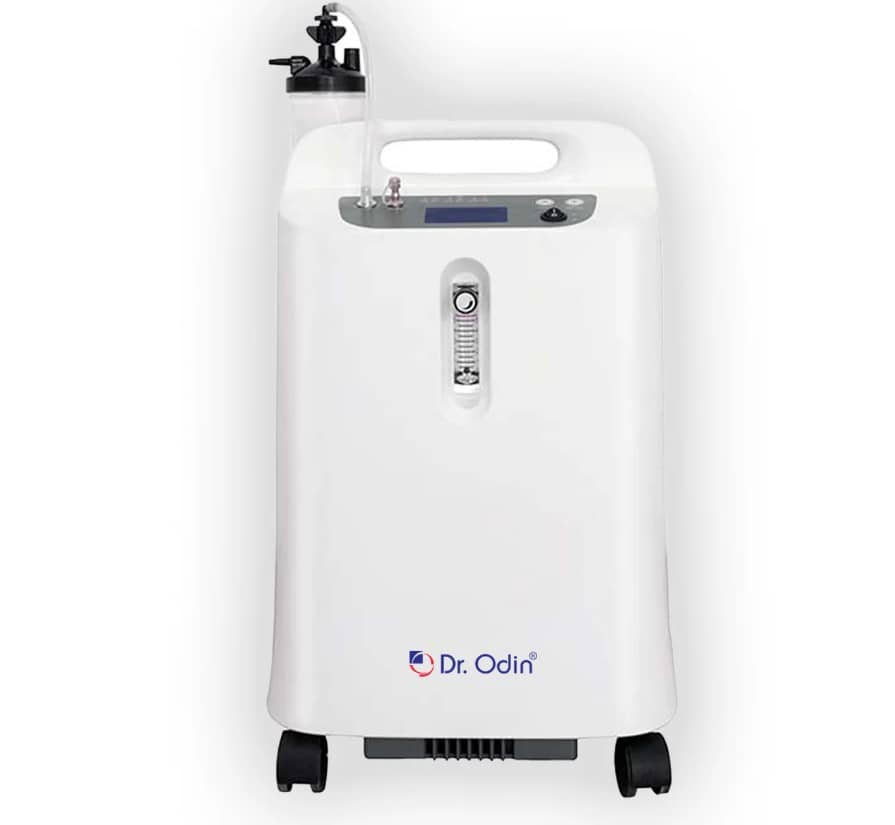Staying competitive in the healthcare industry requires you to improve your skills as a nurse. It allows you to deliver better patient care, build confidence in your abilities, and increase your career opportunities. So, skill development is key to advancing in your nursing career. Now the question is: How to advance your nursing career?
You can start by attending conferences to stay updated on the latest trends. Pursuing advanced degrees and leadership experience will boost your qualifications. Find a mentor, join professional organizations, and focus on high-demand specializations. Being involved in leadership roles can also open up new doors.
Keep reading to discover more practical steps that will help you reach your nursing career goals.
Why is Skill Improvement Crucial for Nurses?
You play a vital role in your professional growth as a nurse, as well as ensuring the quality of patient care you provide. It increases your confidence and opens up new career opportunities. Developing expertise ensures you stay current with healthcare standards.
- Expanding your skills equips you to handle complex cases effectively, benefiting both your patients and your career. It also makes you more adaptable in the ever-changing healthcare landscape.
- Continuing education fosters a deeper understanding of medical advancements, helping you stay ahead in your field. It enhances your problem-solving abilities when facing new challenges.
- Advanced training increases job satisfaction by allowing you to take on more responsibility. This results in better patient outcomes and a sense of fulfilment.
- Specializing in specific areas of nursing gives you a competitive position when seeking promotions. This makes you a valuable asset in high-demand fields.
- Leadership skills gained through development programs prepare you for supervisory roles. They also empower you to mentor younger nurses and shape future generations.
Focusing on skill improvement is essential in building a rewarding, long-lasting nursing career. Keep pushing yourself to grow, and you’ll unlock doors to new opportunities.
How to Advance Your Nursing Career?
In order to advance your nursing career, you need to plan carefully, develop continuous learning habits, and take strategic actions. Getting experience is not just about gaining skills and expanding your professional network, it is also about enhancing your skills and gaining experience. With the right approach, you can open doors to leadership roles, new opportunities, and specialized fields. Here is a guide to help you advance in your nursing career:
Step 1: Attend Conferences and Workshops
Participating in nursing conferences and workshops is an excellent way to stay updated on the latest trends. These events offer hands-on training and skill development in specific areas. For example, attending an international nurses conference in Canada comes with an outstanding opportunity to meet global experts. Such networking is essential for staying informed about career advancements and emerging trends.
Step 2: Pursue Advanced Education
Furthering your education by earning a Master’s or Doctorate in Nursing can improve your qualifications. Specialized certifications in areas like oncology or critical care can set you apart from others. Higher education will give you more knowledge and credibility in your field. It also positions you for leadership roles.
Step 3: Gain Valuable Experience
Taking on new responsibilities, such as becoming a charge nurse or preceptor, can help build your leadership skills. These roles offer practical experience in managing teams and making critical decisions. Gaining this experience is key to moving forward in your career. Leadership experience will make you more competitive for advanced positions.

Step 4: Find a Mentor for Guidance
A mentor can provide personalized advice and help you find the right career path. They share valuable insights based on their experiences, helping you avoid common mistakes. Finding a mentor can make your journey smoother and more focused. Their support will guide you in achieving your long-term goals.
Step 5: Join Professional Nursing Organizations
Becoming a member of professional organizations offers access to exclusive resources and educational opportunities. These groups often host events, provide learning tools, and connect you with experienced nurses. Joining these organizations helps keep you informed about the latest developments. It also enhances your professional profile.
Step 6: Take on Leadership Roles
Volunteering for leadership positions at work or in organizations is a great way to develop management skills. Leading teams and taking on more responsibilities will boost your confidence. These experiences demonstrate your capability to handle advanced roles. Leadership roles can significantly impact your career trajectory.
Step 7: Stay Updated with Industry Changes
Keeping up with the latest developments in nursing ensures you remain competitive and knowledgeable. Reading nursing journals and attending webinars are excellent ways to stay informed. Staying updated helps you adapt to changes in healthcare. Being well-informed also increases your credibility in the workplace.
Step 8: Specialize in a High-Demand Field
Focusing on a high-demand nursing specialty, such as pediatrics or critical care, can open new career doors. Specializing makes you an expert in your field, increasing your value to employers. It also allows you to pursue more focused and rewarding roles. Specialization can lead to long-term career satisfaction.
The Role of Conferences in Advancing Your Nursing Career
As a nurse, attending conferences is one of the best ways to advance your nursing career, as they offer numerous benefits. They provide valuable networking opportunities, the latest industry updates, and the chance to learn from experts. Conferences are a great way to expand your knowledge and build relationships with like-minded professionals.
Expanding Your Professional Network
Conferences introduce you to professionals from various backgrounds, allowing you to build a strong support system. These connections can lead to mentorship or future collaborations. Conferences also provide great networking opportunities with other professionals. Building connections through these events can lead to career growth.
Learning the Latest Healthcare Trends
Conferences keep you updated on the latest developments and the most current innovations in healthcare. Expert speakers present new research and evolving best practices that can improve patient care. This knowledge can give you an edge in your career, helping you adapt to changes. Staying current with industry advancements will increase your value as a nurse.
Enhancing Your Leadership Abilities
Attending leadership-focused sessions at conferences helps you develop essential management skills for career growth. Leadership skills learned at conferences empower you to take on more responsibilities in the workplace. You’ll be able to mentor others and positively influence healthcare policies. Building these abilities opens doors to higher positions in nursing.
Gaining Continuing Education Credits
Many conferences offer opportunities to earn continuing education credits required for maintaining nursing certifications. These credits allow you to stay compliant with industry standards while boosting your qualifications. Taking advantage of these offerings is an efficient way to advance your skills. Earning credits during conferences supports long-term professional development.
So, conferences play a vital role in your nursing career by providing knowledge, connections, and growth opportunities. Prioritize attending relevant events to keep expanding your skills and enhancing your career.
Which Skill Sets Can Make You a Good Nurse?
Becoming a good nurse requires more than just medical knowledge; it involves developing a wide range of skills. These abilities help you provide quality care, communicate effectively, and adapt to the challenges of healthcare. By learning these skills, you can make a positive impact on your patients and your career.
Effective Communication Skills
Nurses must communicate clearly with patients, families, and colleagues to ensure proper care. Active listening is crucial for understanding patients’ concerns and responding to their needs. Effective communication also helps reduce errors in the workplace. Clear, compassionate communication builds trust with patients and healthcare teams.
Critical Thinking and Problem-Solving
Critical thinking allows nurses to assess situations quickly and make informed decisions. Problem-solving skills help nurses find solutions in complex, high-pressure environments. These skills are vital for prioritizing patient care and managing emergencies. Strong critical thinking can enhance both patient outcomes and workplace efficiency.
Empathy and Compassion
Empathy enables nurses to connect with patients on a deeper level, improving the quality of care provided. Compassion helps build relationships and reduces patients’ anxiety during difficult times. Nurses who show empathy can create a supportive environment for healing. Being compassionate leads to trust and cooperation with patients.
Adaptability and Flexibility
Healthcare is constantly evolving, and nurses must adapt to new procedures, technologies, and challenges. Flexibility allows nurses to adjust their schedules and work environments to meet patient needs. Adaptability is key to staying relevant and effective in the workplace. Being open to change makes you a more resilient nurse.
Developing these skill sets can greatly enhance your nursing practice and career opportunities. By focusing on communication, critical thinking, empathy, and adaptability, you can become a more capable and compassionate nurse.
Tips to Help Focus on High-Demand Areas to Boost Your Career
Focusing on high-demand areas in nursing can significantly boost your career by opening up specialized roles and opportunities. Specializing in fields that are in need of skilled professionals will make you a valuable asset. Here are some practical tips to help you concentrate on these areas and elevate your nursing career:
- Research growing specialties like geriatrics, oncology, and critical care. These fields have high demand and offer growth opportunities in specialized roles.
- Invest in continuing education to stay updated on advancements within your chosen specialty. Earning certifications will increase your expertise and credibility.
- Network with professionals in high-demand fields to gain insight and advice. Attending relevant conferences can expose you to new trends and ideas.
- Stay flexible and willing to adapt to new roles in these specialties. Flexibility allows you to take advantage of emerging opportunities within high-demand areas.
- Focus on building leadership skills that align with the demands of your chosen field. Leadership abilities will make you a more attractive candidate for senior positions.
Final Thoughts
Advancing your nursing career requires dedication, continuous learning, and strategic actions that focus on both personal and professional growth. By improving your skills, attending conferences, gaining experience, and specializing in high-demand areas, you open the door to countless opportunities.
Knowing how to advance your nursing career involves taking proactive steps, such as pursuing advanced education and seeking leadership roles. As you grow, mentoring others and staying current with industry trends will further enhance your career. Keep pushing yourself forward, and you’ll find that the possibilities for career advancement in nursing are both rewarding and fulfilling.




























